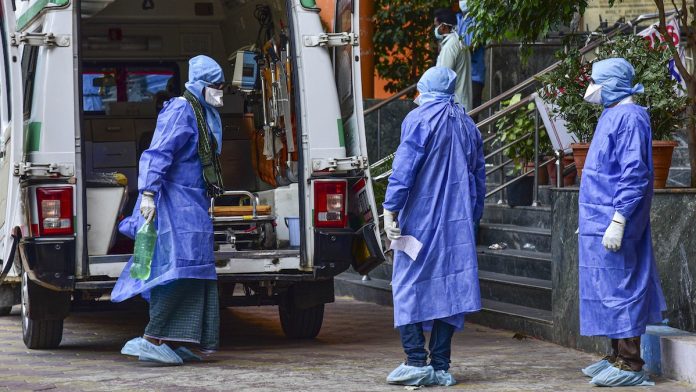For the entire medical community, this unparalleled pandemic has been daunting. The nature of work, decision-making, coping with exposure to suffering and death often leads to helplessness, shame, depression and anxiety, particularly in those on the frontlines.
Symptoms of anxiety, depression, burnout due to long working hours, especially with personal protective equipment (PPE) in hot and humid weather, have been recorded. It took a tremendous toll on the physicians, nurses and other staff at the hospital. Among doctors, the incidence of mental health issues has been increasing.
Factors Affecting Mental Health of Doctors
- Working Hours
There has been convincing evidence that prolonged working hours have adverse effects on the productivity and mental health of medical staff. It has resulted in courts limiting the duration of shifts for healthcare employees.
Despite these warnings, front-line staff around the world are forced to work unhealthful hours, resulting in significant stress that can affect their immunity and decision-making skills.
- Helplessness
Being a close witness to the ravages of the pandemic and painfully conscious of the dangers facing more than 200,000 healthcare staff worldwide who are contaminated with COVID-19, many on the frontline are bound to be worried for their own safety as well as that of their families. Most health care staff live in extended families of elderly people. Every death they see can make them feel, ‘There, but for the grace of God, let me go.’
- Inadequacy in Healthcare System
Healthcare staff are still well aware of the system’s flaws and cannot be reassured, as the general public can, that all is going well when things get worse. Above all, they needed adequate equipment, such as PPE masks, medications and ventilators, available to their patients and to themselves.
In the absence of adequate services, front-line health workers sometimes have to give preference to who should receive and survive care and who should be left to die.
Top it all off, in challenging environments, healthcare workers still need to ensure their own safety.
- Nearly half of the Critical care staff suffer from depression, anxiety due to Covid
A recent research shows that more than half of Covid-19 health staff are at risk for mental health issues.
The findings, published in the Journal of Psychiatric Research, highlighted that physicians, nurses and emergency responders participating in the treatment of Covid-19 could be at risk for one or more mental health disorders.
Various instances of frontline staff being stoned when they have gone for a survey and being attacked by relatives of COVID patients have been reported in India. There’s so much of stress of being harassed and even attacked by people who risk their own lives to help.
Here’s What Expert Suggest-
Dr. Gowri Kulkarni – Head of Medical Operations, MediBuddy said, “COVID-19 pandemic has caused everyone to experience increased levels of distress and anxiety, particularly because of social isolation. Physicians and other frontline health care professionals are particularly vulnerable to negative mental health effects as they are
constantly facing uncertainties, deaths, and loneliness. They also strive to balance the duty of caring for patients with concerns about their well-being and that of their family and friends.”
Along with a good diet, sleep and exercise. Doctors can use these strategies to manage their mental well-being while also caring for patients during the pandemic-
1. Feel free to feel your feelings.
2. Intentionally employ coping strategies
3. Perform regular check-ins with yourself.
4. Be fortified by remembering the importance and meaning of your work.
5. Do not be afraid to seek professional help.











